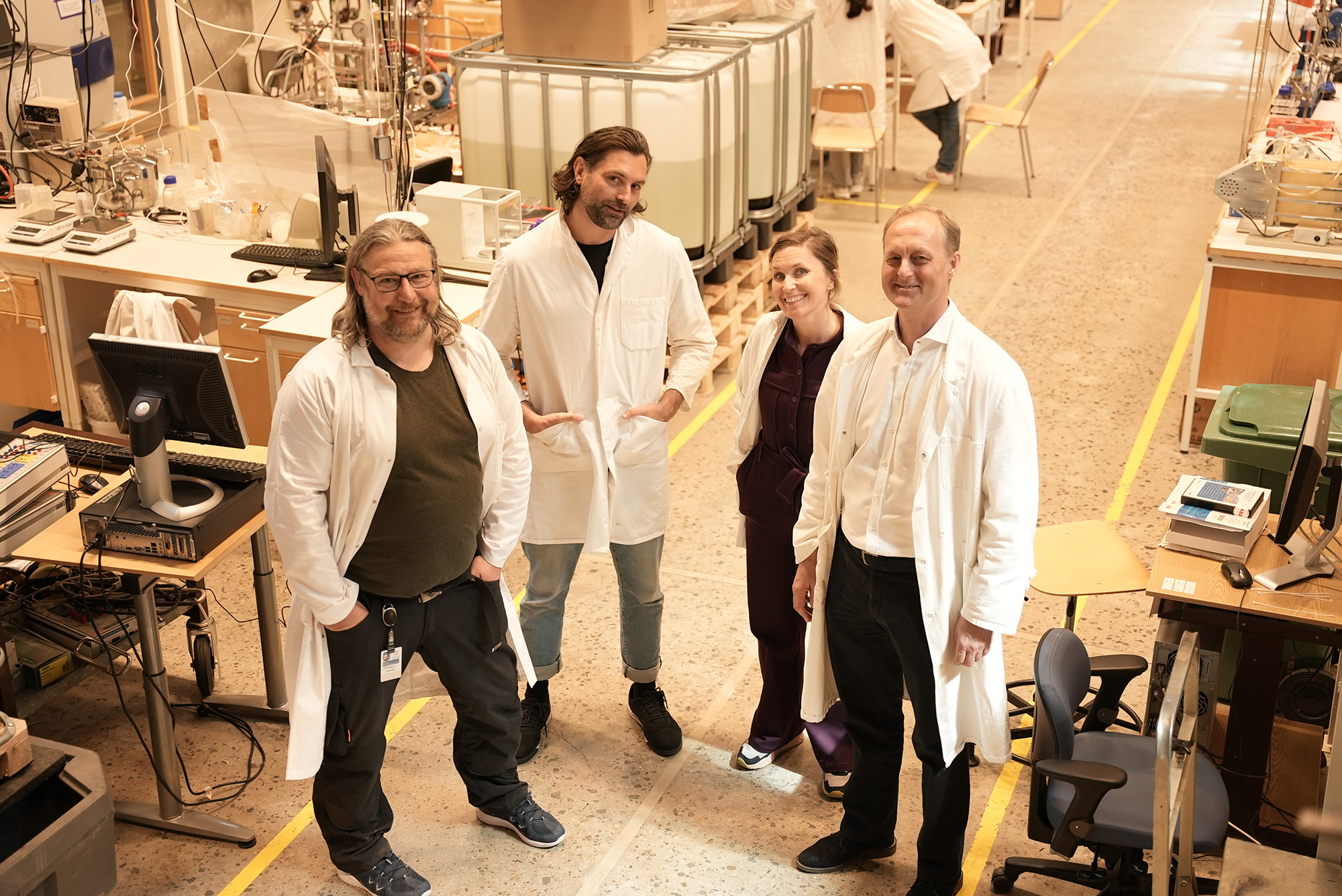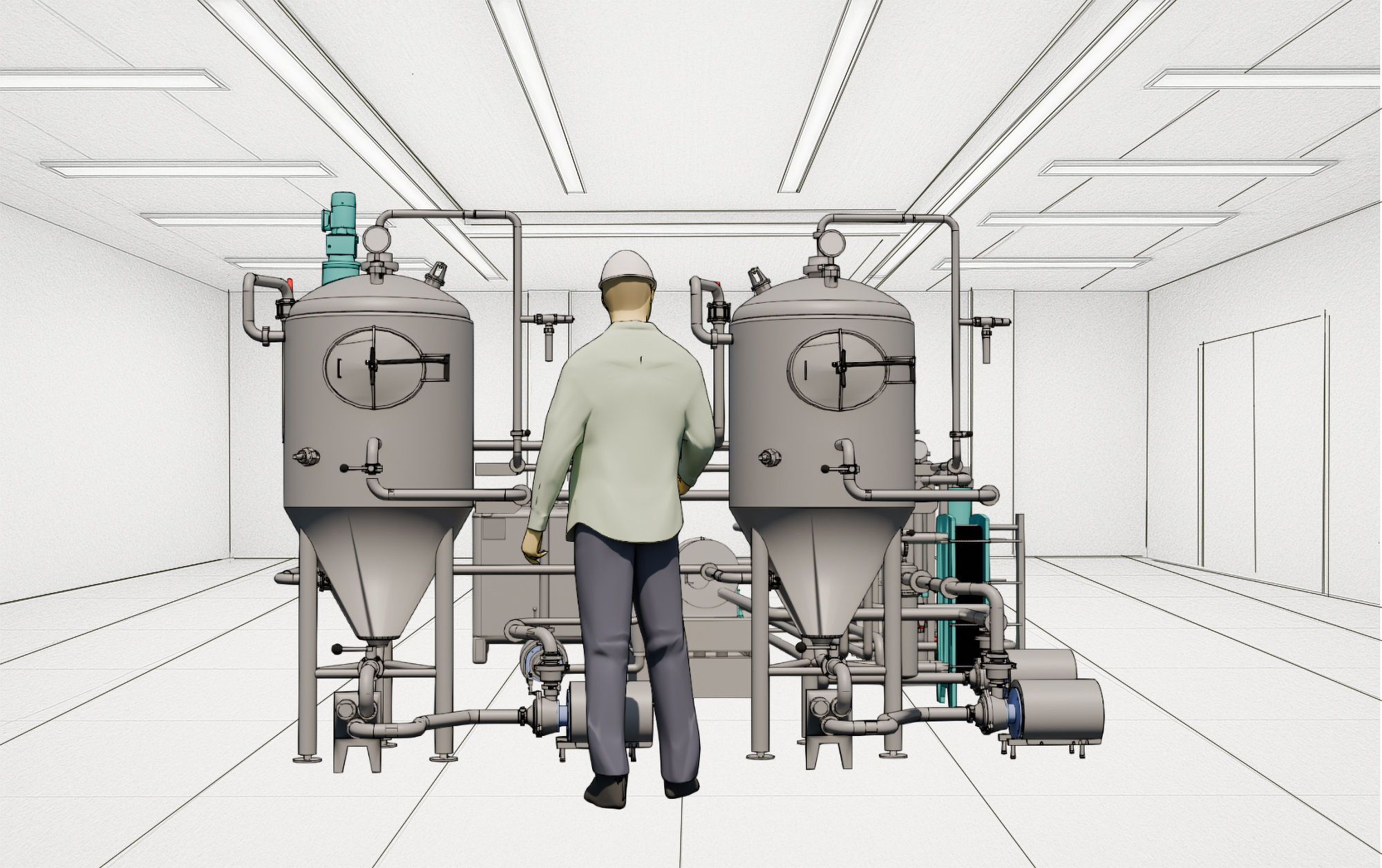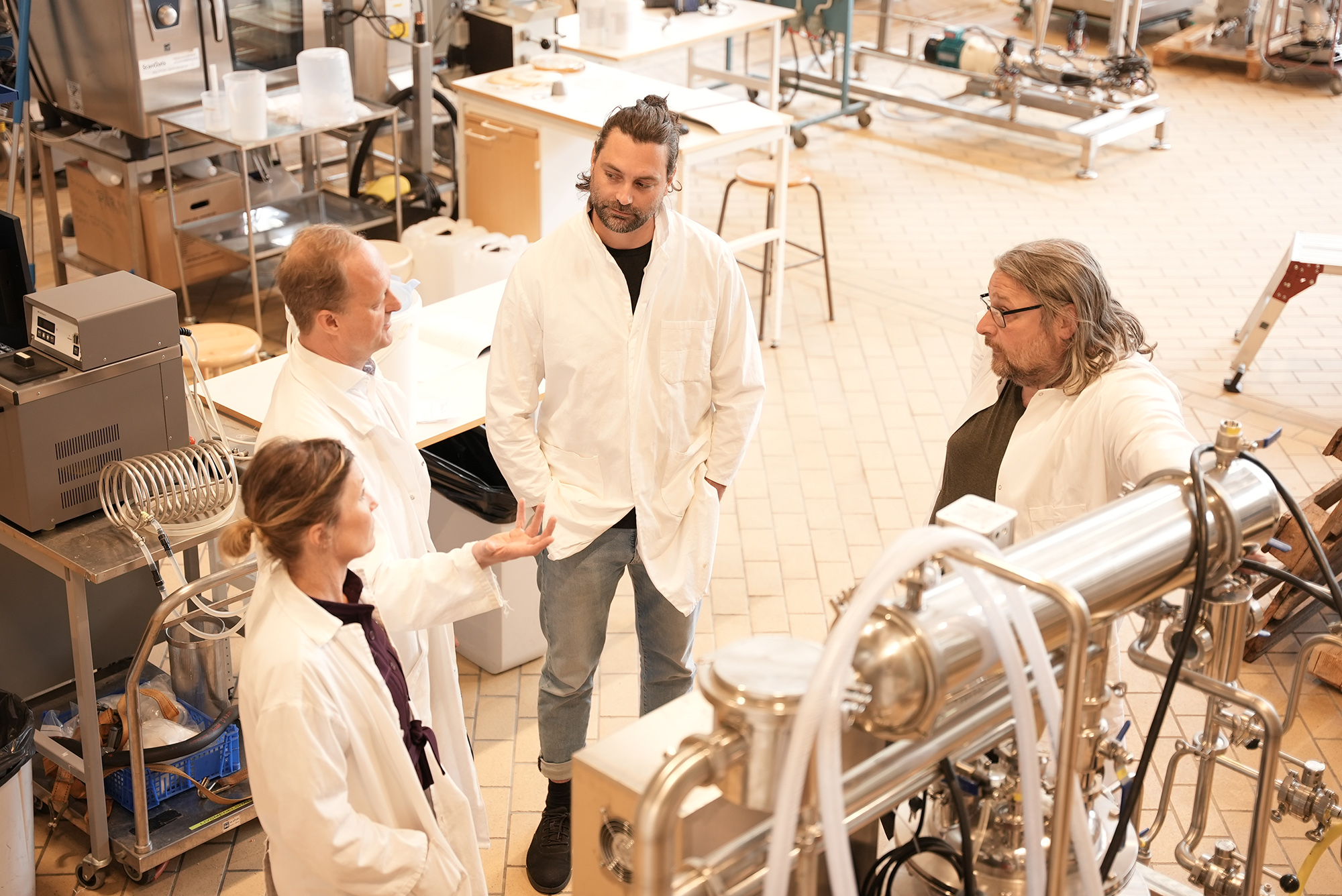

Re:meat partners with Biotech Heights to open Scandinavia’s first Re:meatery in Lund
Re:meat, a Swedish startup developing bioreactors for alternative food production, will establish Scandinavia’s first 'Re:meatery' at Lund University’s Prepilot Plant following a partnership with Biotech Heights. The move comes after the company closed an oversubscribed €1 million (US$1.1 million) funding round earlier this year, capital that is now fueling the buildout of its first pilot site.
Biotech Heights, located at Kemicentrum in Lund, is an innovation hub dedicated to interdisciplinary research and commercialization in biotechnology. It sits alongside the Lund University Prepilot Plant (LUPPP), the only university-based prepilot facility in Sweden serving the food, biotech, and chemical engineering sectors. By joining as Biotech Heights’ first startup member, Re:meat is positioning itself at the center of a growing cluster focused on biosolutions.
“Collaboration is necessary – to advance the development of fermentation and apply bioprocess technologies to new industries,” commented Emma Nordell, Managing Director at Biotech Heights. “Re:meat will be our first startup to pave the way for collaboration between academia, startups, and industry players within biosolutions.”
The Prepilot Plant, which provides infrastructure and expertise for early-stage innovation, welcomed the decision. “It is really inspiring that Re:meat wants to establish a pilot in our environment, it will open up for exciting new opportunities for innovation, research, and education,” said Martin Hedström, Manager at LUPPP and Senior Lecturer at the Division of Biotechnology and Applied Microbiology.

At the core of Re:meat’s work is its patented hardware technology designed to dramatically lower the cost of equipment used in cultivated meat, precision fermentation, and other biotechnology processes. The company has focused on creating food-grade systems that deliver the performance of pharmaceutical-grade bioreactors at a fraction of the cost.
“We identified the need to design equipment that costs a fraction of today to be able to scale and industrialize alternative foods production and all its connected processes,” said Re:meat CTO Marten Schmidt. “This could enable a food revolution. Inspired by our many years in the brewing industry combined with our R&D team in cell biology, we have developed a food-grade bioreactor that still meets the high standards and parameters to cultivate sensitive mammalian cells.”
Schmidt added that the technology is versatile, with applications beyond cultivated meat. “This means that our Re:meatery also fits for yeast and bacteria-based processes, such as precision fermentation. So, the potential really extends beyond cultivated meat. Biotech Heights is a great partner supporting our common goal of bridging academia and commercialization by providing the perfect combination of available infrastructure and scientific know-how.”
The Re:meatery pilot is scheduled to be installed at LUPPP by the end of 2025, with validation work to begin in spring 2026 alongside partners and clients.
The partnership reflects a growing recognition in the Nordics of the need for dedicated infrastructure that can bring emerging biotechnologies out of the lab and into industrial contexts. By embedding itself within Biotech Heights and Lund University’s facilities, Re:meat is aiming to demonstrate both the feasibility and the cost advantages of its hardware platform.

Nordell said the collaboration represented a broader vision for Biotech Heights. “By integrating startups like Re:meat into our hub, we want to create an ecosystem where ideas can be tested, scaled, and transferred into real-world applications. It is this bridge between academia and industry that can unlock the full potential of biosolutions.”
For Hedström, the arrival of Re:meat underscores the role of the Prepilot Plant as a neutral testing ground for food and biotech innovation. “Our facility is designed to reduce the risks and costs associated with early industrialization,” he said. “Re:meat’s decision to pilot here shows how valuable this environment can be for young companies with ambitious technology.”
Re:meat’s development also comes at a time when cost reduction is seen as one of the main hurdles facing alternative proteins. By targeting the expense of core hardware, the company is taking a different path than many peers, focusing less on ingredients or recipes and more on the enabling technology that could make large-scale cultivated food production viable.
If successful, the Re:meatery in Lund will provide proof of concept that food-grade bioreactors can deliver the same level of control and safety as pharmaceutical-grade systems while being better aligned with the economics of food production. That validation will be crucial as the company looks ahead to scaling with partners across the alternative protein landscape.
For now, the focus is on bringing the pilot online and demonstrating its versatility across cell, yeast, and bacterial processes. As Schmidt noted, the ambition extends far beyond a single category. “Our technology is about enabling bioprocesses wherever they can make food production more sustainable,” he said. “Cultivated meat is one application, but the potential runs across the food system.”
If you have any questions or would like to get in touch with us, please email info@futureofproteinproduction.com


-p-800.jpg)



